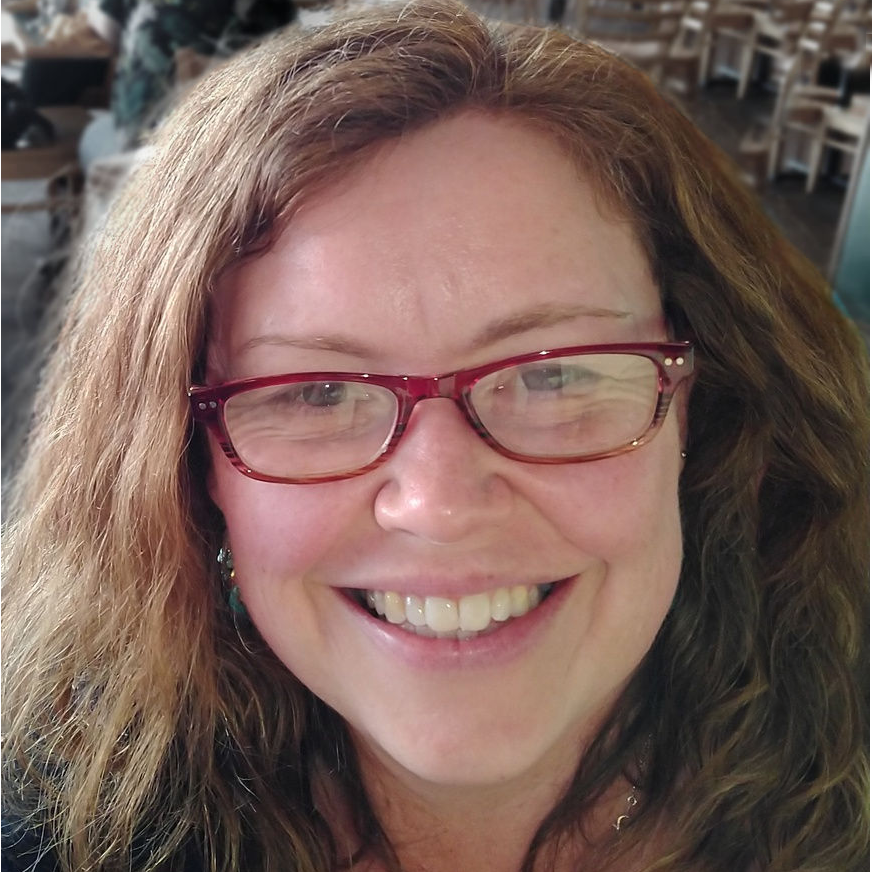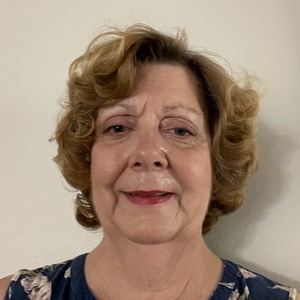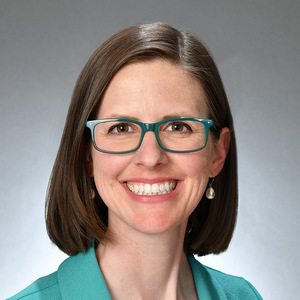
Symposium Session Details
You can read about the sessions below, and the program is also available as a PDF to download and/or print.
SESSION 1: 9:00 AM - 10:30 AM (90 MIN)
The Evolution of Adult Education:
Transforming the Field of Today for Tomorrow’s Opportunities
Mention the term “adult literacy”, and the usual reaction is “Oh, you teach people how to read.” But our global ecosystem is evolving and adult education must also evolve to meet the needs of both today and tomorrow. Traditional training and services must embrace supplemental knowledge and resources beyond our comfort zones. The days of being a subject specific agency or instructor are gone, and both diversification and the willingness to experience some discomfort are needed.
This session will explore the expanded definition of adult functional literacy through Houston’s Adult Literacy Blueprint and provide participants with an opportunity to expand their service models into 3 Domains and 7 Goals to support growth aligned with emerging needs for post-pandemic adults and families.
PD Category (assigned by TCALL): Other

Presenter: Jacqueline Aguilera
Jackie Aguilera’s adult education career spans more than three decades of working with first year college students, immigrants, youth and adults, and AEL providers. Her efforts include projects, programs, and initiatives in financial, digital, health and safety, and environmental literacy. Highlights include piloting financial edutainment online games, Houston’s implementation of the English@Work program, coordinating efforts leading to a Houston win in the 2019 Xprize Adult Literacy Apps competition, and serving in the Mayor’s Office for Adult Literacy.
Jackie completed the COABE State Advocates for Adult Education Fellowship and is now an alumni and advocacy mentor. She is one of four Houston women to receive the 2021 Ford Foundation’s Mujeres Legendarias award for her work in education through technology innovations and digital literacy. She served in an advisory capacity with the Environmental Defense Fund and Texas Southern University to implement an environmental literacy certification component to its green jobs training class. Most recently, Jackie was invited to join the Xprize Education Brain Trust, an integral part of their Global Visioneering team.
Setting Goals in the Adult Classroom: The Why & the How
Adult literacy classes are more effective when the content focuses on learner goals and immediate needs – and making sure that content is relevant and practical helps drive both persistence and retention. After all, we all want to feel respected, involved, and in control when we’re learning something new!
But talking about goals is easier than bringing them into the classroom – and that’s even before you get to language and literacy barriers. So how do we gather student goals effectively?
In this session, we’ll look at why helping adult learners set goals is important, as well as some practical ways to accomplish this.
PD Category (assigned by TCALL): Other

Presenter: Kathryn Bauchelle
Kathryn has been a leader in adult literacy in Texas for almost 15 years, and in the education field for even longer. Her experience includes classroom teaching of children and adults, program creation, direction, and evaluation; grant-writing and other fund development; and marketing and communications. Kathryn has been a regular presenter at the Literacy Texas annual conference and currently works as a consultant in communications, education, and training.
While working at adult literacy organization Literacy Advance of Houston, she studied the goal-setting process already in place, and worked with staff to research and update the process. By incorporating Adult Learner Persistence principles and keeping Plain Language front and center, they made goal-setting an integral part of the learner experience, and made it simpler for learners, as well as more streamlined for volunteer tutors.
SESSION 2: 10:45 AM - 12:15 PM (90 MIN)
LD Teaching Strategies for Math
LD = Learning Differences, Difficulties, or Disabilities
Many students experience these terms firsthand, but no matter the case, it’s important that you don’t consider them a Deficit! This workshop is for anyone involved in adult numeracy instruction who wants ideas for helping students develop a strong core foundation without relying on mnemonics to try to remember procedures.
In this workshop, you will explore some of the strategies that you can use to help students access math ideas so they can be successful math users. These strategies can be adapted to any level and used with any math content area. You will look at research on learning disabilities as it relates to math, try out some strategies for themselves to add to their teaching toolkit, and watch a student illustrate the power of such strategies.
PD Category (assigned by TCALL): Lit

Presenter: Connie Rivera
Connie guides adults through experiences which allow them to uncover meaning and discover connections, and therefore act with increased confidence with numeracy. She serves adult students preparing for high school equivalency, and brings her passion and varied classroom experience to her role as a training and curriculum development specialist. Connie is proud to have served as a president of the Adult Numeracy Network.
How to Build a Flourishing Citizenship Program
This session will address topics such as how to get a citizenship program started and getting a program to grow; creating courses that are learner-centered; and the importance of finding support for your organization that partners with other providers of naturalization/immigration services. The presenter will share from his own experiences of building a program and lessons he learned.
Building an effective citizenship program requires attentiveness to the different stages of the naturalization process, as well as attentiveness of the varying English proficiency levels of your students. In this session, participants will be able to:
1) Identify the requirements for naturalization and become familiar with the entire naturalization process,
2) Understand and demonstrate an ability to contextualize instruction to varying English proficiency levels,
3) Recognize the importance of connecting your program to support in the immigration/legal community.
PD Category (assigned by TCALL): Other

Presenter: Pete Zagone
Pete Zagone currently serves as an AEL Teacher Trainer & Instructor with Memorial Assistance Ministries. He first started at MAM in 2015 as a Program Manager and received his CELTA certification in 2018. Raised in Houston, he attended Texas A&M University and graduated with a BBA in Management.
Prior to working for MAM, he was a Jesuit Brother working with the Society of Jesus (the Jesuits). While in formation as a Brother, he worked at a soup kitchen in Tijuana, Mexico, and later studied Spanish at the Universidad de Central America (UCA) in El Salvador. He served at a parish in El Paso and oversaw an outreach program that helped people find jobs, learn English, improve their computer literacy skills, and for many, become U.S. citizens. It was in El Paso that his passion for adult education began. He believes that literacy is the key to helping people become active and engaged members of their community.
LUNCH & ROUND-TABLE: 12:15 PM - 12:45 PM (30 MIN)
Details coming soon.
SESSION 3A: 1:00 PM - 2:30 PM (90 MIN)
Numeracy Routines That Develop Language
What math can you do with a class of students from varying math backgrounds who have a wide range of test scores? Help your students develop reasoning and thinking habits; practice and build language skills; and build community by regularly using short numeracy activities in your instruction.
In this workshop, you will work through two different types of numeracy routines yourself as a learner. By observing how the facilitator connects sample content to numeracy skills, you will learn instructional strategies you can use in your own classroom that can help you capitalize on students’ natural curiosities. Opportunities to connect material to adult numeracy can arise in any academic class!
PD Category (assigned by TCALL): Lit

Presenter: Connie Rivera
Connie guides adults through experiences which allow them to uncover meaning and discover connections, and therefore act with increased confidence with numeracy. She serves adult students preparing for high school equivalency, and brings her passion and varied classroom experience to her role as a training and curriculum development specialist. Connie is proud to have served as a president of the Adult Numeracy Network.
SESSION 3B: 1:00 PM - 2:00 PM (60 MIN)
Breaking the Code: Helping Readers Understand How Words Work to Improve Reading Skills
In this session, you will learn how words work in English and the essential skills that all readers need to be successful. Learn how to determine your students’ reading skills using the Quick Phonics Screen (an easy tool that gives a wealth of information), how to help students improve their ‘decoding’ skills, gain an understanding of the six basic types of syllables in English, and ways to divide and conquer multi-syllabic words.
This session is appropriate for tutors of students with low, middle, and high reading skills as it will teach you how to further develop their ability to read simple to complex words.
PD Category (assigned by TCALL): Lit

Presenter: Sally Kubiak
Sally Kubiak taught reading and language arts in elementary and intermediate schools in Alief Independent School District for 18 years. Specializing in reading, she not only helped students grow, but often supported her fellow teachers as they enhanced their instructional skills in the area of reading.
Prior to becoming a teacher, Sally earned her Masters in Social Work and worked as an administrator and service provider in mental health and social service agencies in St. Louis, Central Texas and Houston for over 20 years. Sally retired in 2018, but with her love for teaching reading she soon became a volunteer tutor at Literacy Council of Fort Bend County focusing on Basic Literacy.
SESSION 4: 2:00 PM - 3:00 PM (60 MIN)
Working With Learners Who Have Dyslexia
Between 5% and 17% of the US population has dyslexia. However, in Texas public schools in 2018, only 3.29% of students were identified as having dyslexia. We have adults struggling to read in our programs who have undiagnosed reading difficulties, including dyslexia.
Join Lara Speights, Licensed Dyslexia Therapist and Vice President of Family Support and Adult Literacy at Neuhaus Education Center, as she discusses red flags for dyslexia and practical approaches to reading that are beneficial for all learners, and essential for those with dyslexia.
PD Category (assigned by TCALL): Lit

Presenter: Lara Speights
Lara Speights is the Vice President of Family Support and Adult Literacy at Neuhaus Education Center in Houston, Texas. She is a Certified Academic Language Therapist, Licensed Dyslexia Therapist, Reading Specialist, and English as a Second Language teacher. She earned a M.Ed. in Language and Literacy from Harvard’s Graduate School of Education and a B.A. in Spanish and English from Texas A&M University.
Prior to joining Neuhaus, Lara spent a decade working in public charter schools in the Rio Grande Valley and Houston area as a classroom teacher, dyslexia interventionist, English language learner coordinator, and instructional coach. She has widespread experience collaborating with and advocating for parents of students in special populations such as English language learners and students with learning disabilities.
You missed this event – but there are more coming up!
Get Texas literacy updates
Join our mailing list so you don’t miss any news:
- Local and national literacy news
- Conference updates
- Regional symposia
- Best of Texas
- Advocacy
- …more!



